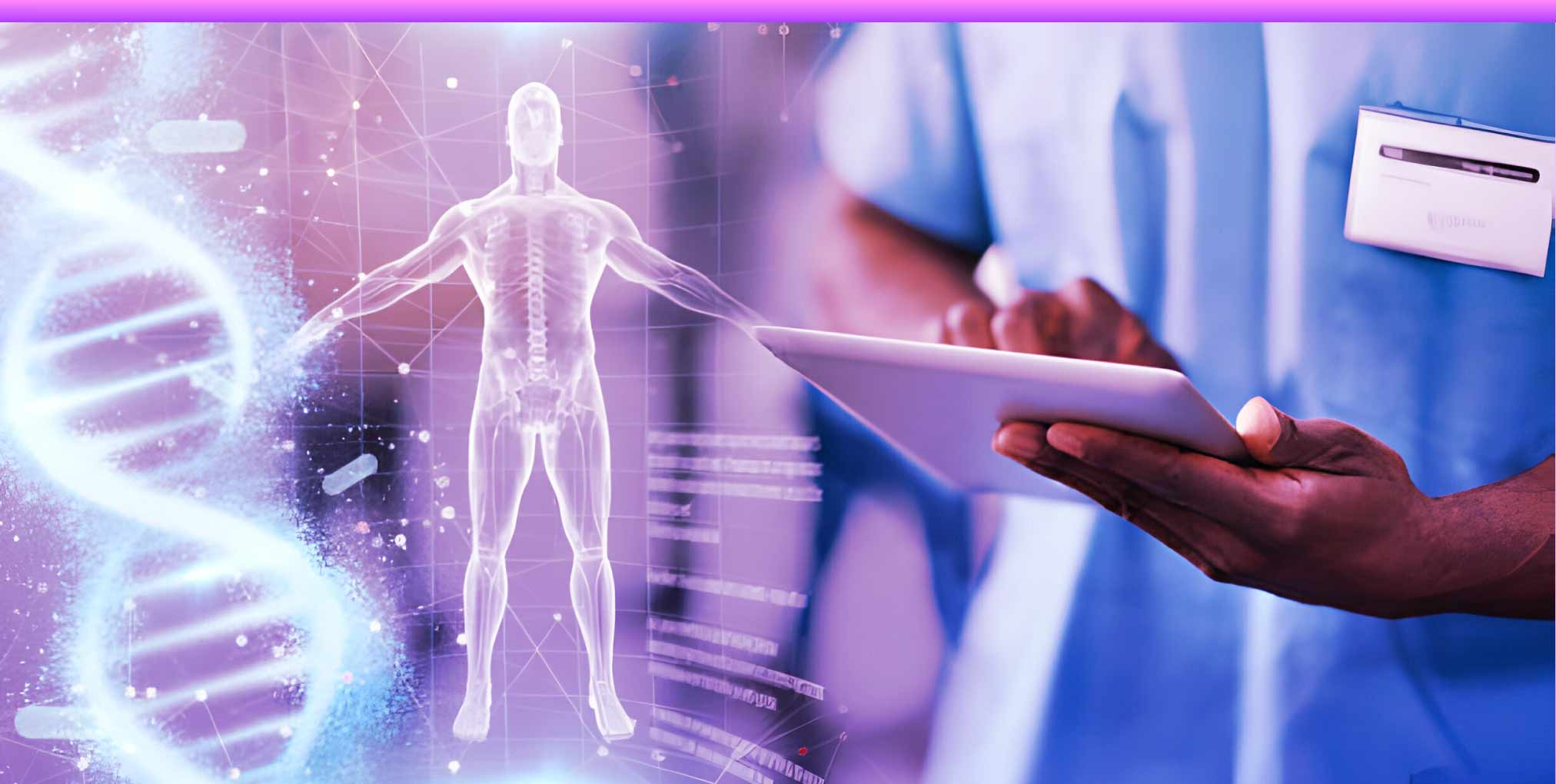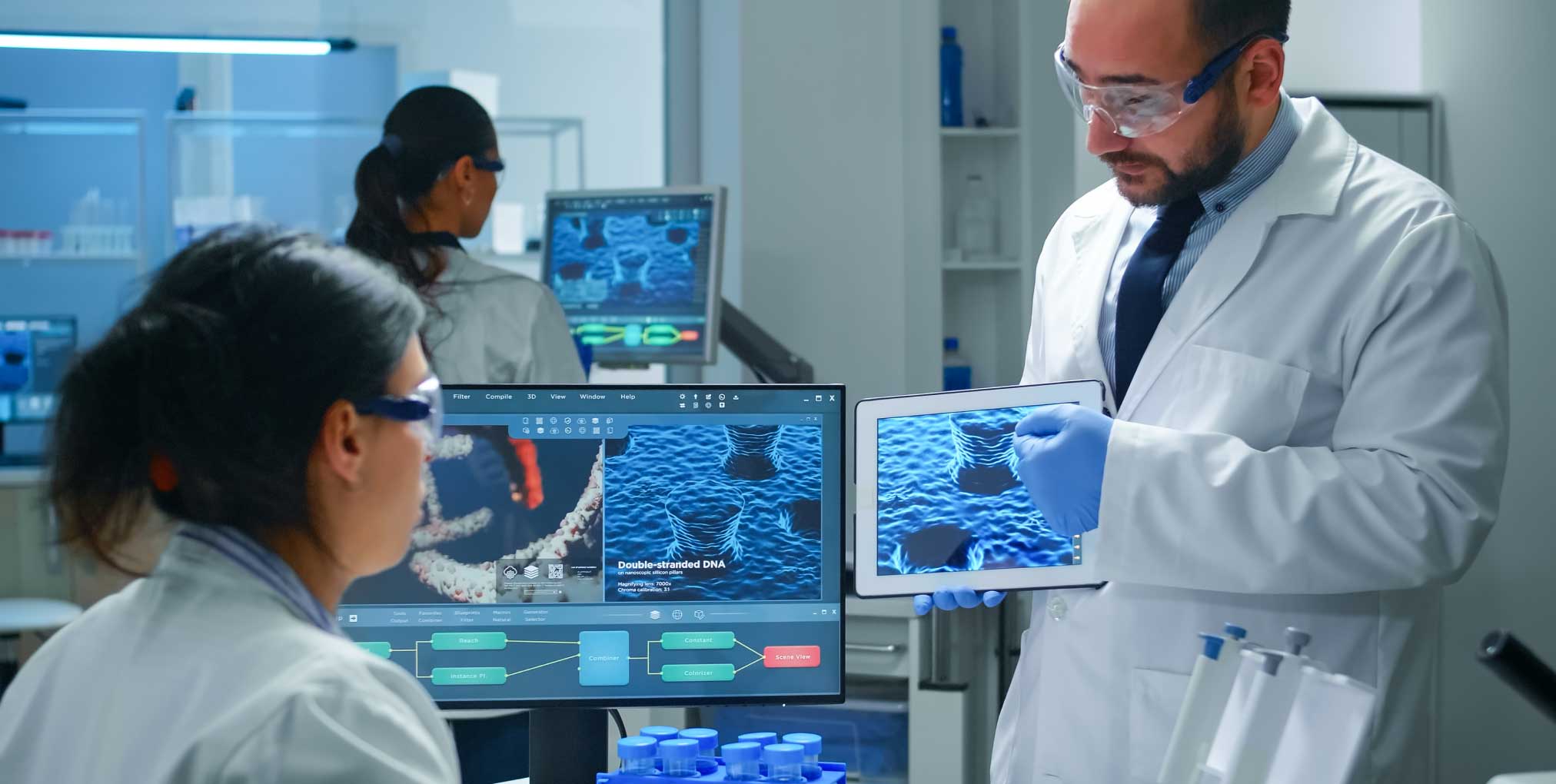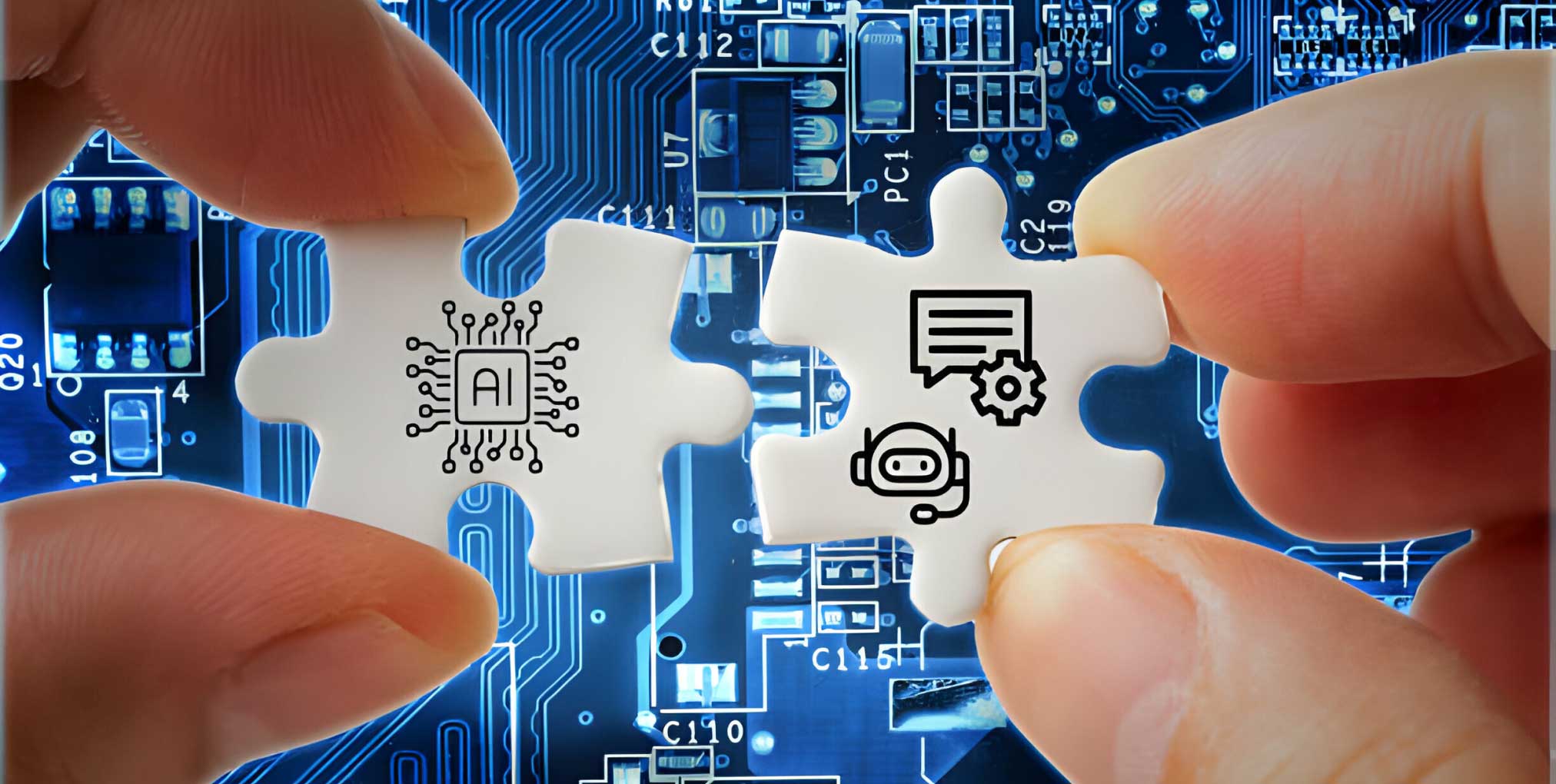

February 20, 2024
Artificial Intelligence is at the forefront of innovation with its ability to transform every aspect of human existence. It has transformed the way businesses operate and how we communicate and interact with the environment. Its impact is not limited just to individuals; it has reshaped life sciences and several other industries, including finance, education, real estate, healthcare, etc.
Due to the impact of AI in life sciences and other sectors, it is impossible to find someone who doesn’t know about Artificial Intelligence and its revolutionary capabilities. According to Statista, the global Artificial Intelligence market will reach 126 billion U.S. dollars by 2025.
In this article, we will be discussing the top 7 AI applications in life sciences and the challenges associated with implementing this cutting-edge technology.
The impact AI now has on life sciences is just the beginning. It is evident from the stats indicating that AI in life sciences will be worth $2.25 billion in 2024, which is expected to grow 4 times and reach $9.80 billion by 2032. Let’s have a look at the impact and AI use cases in life sciences in 2024.

Accurate diagnosis of an illness is challenging sometimes due to another disease having the same symptoms. Moreover, a high volume of data and medical records are required for precise disease diagnosis.
AI can be a crucial player in the earlier diagnosis of diseases by analyzing the necessary amount of data. AI models also analyze patient’s records and suggest the best therapy. Moreover, AI algorithms learn from the data provided and improve their accuracy.
Artificial Intelligence in pharma and biotech companies plays a crucial role in transforming their processes. AI streamlines demand forecasts and helps businesses predict inventory needs accurately. It helps to reduce costs and improve operational efficiency. Moreover, tracking sensitive products becomes more accessible by implementing AI in life sciences.
Clinical trials usually take a lot of time for several reasons, including sufficient patient samples. However, AI has revolutionized patient recruitment for clinical trials. It has significantly reduced the time to analyze large amounts of data and to find suitable participants. This technology is now used worldwide as it makes trials more efficient and cost-effective.
Artificial Intelligence is changing the way treatments are tailored in life sciences. It dives deep into patient data, considering different factors, which helps doctors find better treatment options.
Additionally, AI tools can quickly and accurately analyze complex medical records, like histories, images, and tests. It helps doctors respond promptly to patient’s needs and provide personalized care.
AI simplifies side effect detection by analyzing diverse patient data, improving safety in global drug trials. It employs advanced technologies like computer vision and NLP to spot potential adverse effects promptly.
If any bad effects are detected, an alert goes to the drug development team. It helps to act quickly to stop health problems and save money.
AI offers significant benefits in drug discovery and development. It analyzes extensive data and produces a list of possible drug candidates quickly.
Moreover, the manufacturing of new drugs often requires significant time. AI tools streamline this process by standardizing data from various sources like hospitals and research labs. It results in the quicker and more cost-effective introduction of new drugs to the market.
Predictive analytics is one of the most prominent AI use cases in life sciences. It forecasts patient outcomes, disease progression, and resource allocation. Machine learning algorithms can predict outcomes like readmissions and treatment responses by analyzing electronic health records (EHRs), medical imaging, and clinical data.
Undoubtedly, hundreds of AI benefits for life sciences can transform the industry, but there are many risks and challenges to implementing AI in healthcare and life sciences. These risks of AI for life sciences must be addressed to realize its full potential.

A massive amount of patient data is required in life sciences to generate accurate insights. However, AI models are trained on limited data, which can cause biasedness. It can result in unfair outcomes that can have severe consequences for patients.
Companies must use the industry’s best AI life sciences practices and implement the necessary processes to ensure that the data is unbiased to get precise outcomes.
One of the biggest challenges of implementing AI in life sciences is the lack of life sciences and AI professionals. A recent AI Skills Gap study shows that 93% of US and UK organizations prioritize AI projects, but over 51% of companies lack the necessary skilled talent to advance their initiatives.
It has been acting as a barrier to innovation in the field of life sciences. However, this issue can be addressed by enhancing the skill set of the people already in the industry through training programs.
Ensuring regulatory compliance holds significant importance as the life sciences industry has strict data privacy rules. Organizations can face serious legal issues if they don’t meet these industry requirements.
The implementation of AI in life sciences can enhance regulatory compliance risks. However, organizations can lower the risks by staying up-to-date about the regulations and having a strong culture of compliance within the company.
Life sciences data, particularly patient health records, are highly sensitive and subject to strict privacy regulations. However, AI in life sciences can increase data privacy and security concerns.
Companies can overcome this challenge by ensuring the privacy of data used in AI applications to maintain patient trust and comply with legal requirements.
AI has transformed the life sciences sector by automating diagnosis, expediting drug development, improving clinical trials, etc. However, it is just the beginning of this robust technology revolutionizing the industry. With the advancement of AI technologies, the future of the life sciences industry looks promising.
Overwhelmed with the potential of AI? For those seeking to benefit from AI technology, Xeven Solutions offers comprehensive AI development services tailored to meet your needs. Our skilled professionals specialize in designing and implementing healthcare AI solutions that empower businesses to optimize processes and make data-driven decisions.